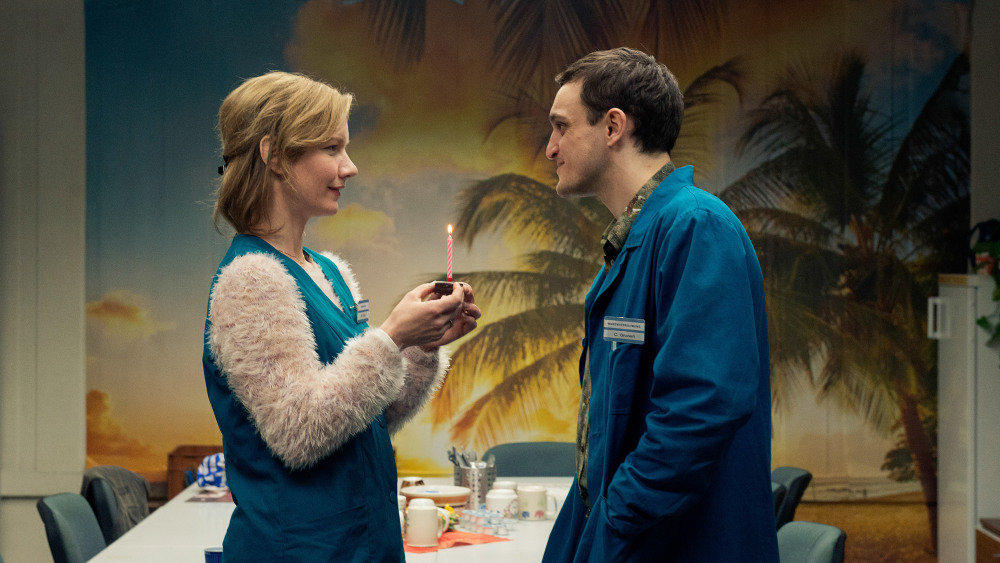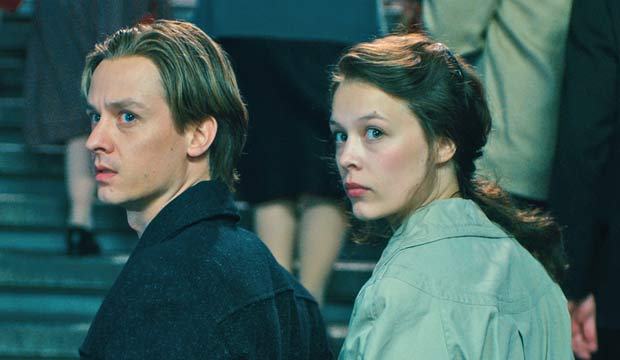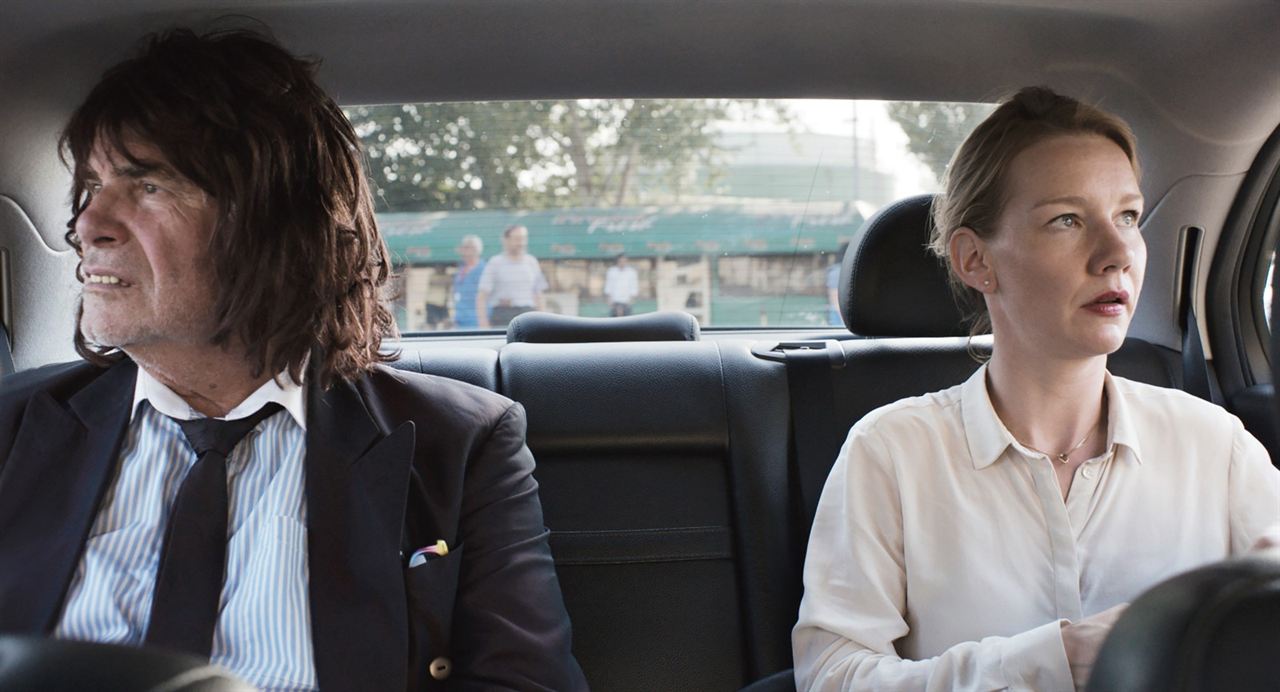5. 3 (Three) (2010) – Tom Tykwer

The only true German film from Tykwer this decade explores a love triangle between David Striesow and a couple, Sophie Rois and Sebastian Schipper. It’s a film that probably wouldn’t even be made at the end of the decade, but proves that real adult dramas, sometimes recalling queer cinema, can be mainstream in the most profound ways.
In the film, we see a husband and wife begin a relationship with another man, all independently of one another and without knowledge. These extremely sexual relationships begin in ways that don’t throw off the viewer, but rather perplex, fascinate, and enthrall us deeper into their meaning. As the film unfolds in Tykwer fashion of rapid montages that fill all corners of the screen, the tension builds to the eventual climax. However, it’s the adult maturation that really strikes home.
Featuring three performances that capture the confusion of modern relationships, sexuality, and longing, this film doesn’t shy away from these themes but offers an insight into them. Without a clear explanation and certainly not being able to figure one out, we feel for these three people, the choices they made and what they will make in their future.
4. In The Aisles (2018) – Thomas Stuber

How can a film that takes place in a large warehouse of a store reflect the psychological issues of its characters in modern-day Germany? Well, Stuber manages to portray fractured human beings in a deadpan comedic way, never shying away from true mundane simplicity.
Through the film’s static camerawork and leisurely pace, we see the brooding romance between two of German’s rising stars: Franz Rogowski and Sandra Huller. We sense Rogowski from his quietness, new job, and covered tattoos that he is a reformed convict trying to keep a low profile in the modern world. Through this predicament, we see the beauty of the little moments that happen at work through humor, whether it’s forklift problems, eating still good thrown-out food, and patiently observing a schoolboy crush.
Stuber’s assured direction certainly makes this film stand out; if done in any other way, the film would have lacked a punch and aimed for too many cliched emotions. In the end, it’s a film that hits you after it’s over, and you realize you just spent two hours with real people trying to connect, mend, and exist in the modern world in the best way they can.
3. Never Look Away (2018) – Florian Henckel von Donnersmarck

After an eight-year hiatus, Florian Henckel von Donnersmarck returns with a historical romantic coming-of-age epic grounded through the major German history moments of the 20th century. Beginning in World War II and into the 1960s Cold War, we witness Tom Schilling again as a young man navigating the art world with love, memory, and purpose.
Shot flawlessly by Caleb Deschanel and scored by Max Richter, the film is definitely one where every frame falls perfectly into place over its three-hour runtime where no moments are wasted. You witness the passage of time and how everything starts to unfold before our protagonist’s eyes as he discovers his true purpose in life through his art and those around him. It’s the creating and realizations that truly stick in our minds after the film has ended, as von Donnersmarck directed with such sympathy and grace.
For any fan of German cinema that incorporates feelings through German-only events but never loses the true aspects of cinema and psychological condition, this film should be viewed and appreciated, much like the art that is created to save one’s soul.
2. Toni Erdmann (2016) – Maren Ade

After two feature films, Ade knocked it out of the park in unexpected ways, focusing on a father-daughter relationship in the modernizing world. The film tells this story with two outstanding lead performances, of Sandra Huller’s business-focused Ines and Peter Simonischek’s whimsical Winfried and Toni and their relationship.
Unclassifiable in genre; juggling slapstick comedy with absurdist situations, modern European Union subplot, or farce; this tragicomedy, so to speak, really hits home by the end of the film. As we see Winfried just wanting to be a part of his daughter’s extremely busy life while she struggles with her demanding job and his personal withdrawal, the true emotions come out. With Ade’s assured direction, whether it’s through fake teeth, sharing a song, or a hug with a giant kukeri costume, these polar opposite family members truly connect.
The film surely comments on the current state of Germany in the world, but its true focus is the father-daughter relationship that anyone struggling with a relationship in their life can relate to. It’s a film that should be rewatched not just for the laugh-out-loud gags, but the heartfelt moments in between that would have Chaplin applauding in the audience.
1. Phoenix (2014) – Christian Petzold

A director whose tales of political or social exile and survival through characters has never faltered, and here, he creates one of his best. Continuing with his cast from 2012’s “Barbara,” his muse Nina Hoss’s Nelly navigates postwar Germany as a Holocaust survivor when she encounters her husband, Ronald Zehrfeld’s Johnny, who does not recognize his wife at all.
Throughout the film that is told in delicate framing, color, and pace, we see Hoss acting as a former self to her husband to see if he betrayed her in the war. This film almost feels classic as you watch it, and despite building to a climax and with one of the best finales of the decade, no moment is left wasted. Whether referencing facial horror or Hitchcock, this film is original from beginning to end.
With Petzold’s continuation and fascination of tragedy, identity, and survival, he hits his highest peak with stunning performances and overall craftsmanship in this film. It’s a German film that will be remembered for decades to come as well.